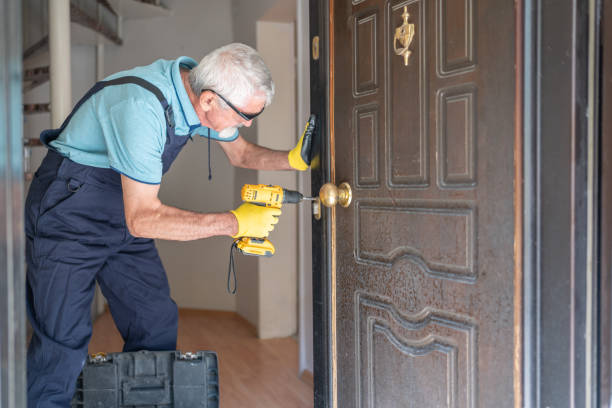A house lockout occurs when someone is unable to enter their home due to lost keys, forgotten keys, broken locks, or other lock-related issues. It is an everyday emergency that can happen to anyone, often catching people off guard. A house lockout can range from mildly inconvenient to a serious problem, especially if children, pets, or elderly family members are inside the home.
Understanding house lockouts helps homeowners respond effectively. Recognizing potential causes and knowing what steps to take can reduce stress and prevent damage to property.
Common Reasons for Being Locked Out
The most common cause of a house lockout is losing or misplacing keys. Many people accidentally leave keys inside their homes, vehicles, or other locations. Losing a key entirely can escalate the situation and often requires professional assistance.
Lock-related issues are another significant factor. Over time, locks can wear down, jam, or malfunction. Keys can break inside the lock, or the locking mechanism may become difficult to turn. Electronic locks can fail if batteries die or systems malfunction, leaving homeowners locked out without an immediate backup option.
First Steps to Take During a Lockout
When faced with a house lockout, the first priority is safety. Stay calm and assess your surroundings. Look for alternative access points, such as unlocked windows or secondary doors. While this can sometimes provide a temporary solution, always ensure safety first to avoid injury.
Calling a professional locksmith is often the most reliable option. Locksmiths are trained to handle all types of locks and can provide prompt, safe entry without damaging doors or hardware. Many offer 24-hour services, which is critical if a lockout happens late at night or during extreme weather.
DIY Solutions and Considerations
Some situations may allow for DIY solutions. If spare keys are stored with trusted friends, neighbors, or in a secure lockbox, access can be regained quickly. However, attempting to pick a lock or force entry without experience can result in damage, leading to more costly repairs.
Homeowners with electronic locks should check battery life or try alternative entry methods provided by the manufacturer. Many smart locks offer backup codes or mobile access features that can prevent the need for professional intervention.
Preventing Future Lockouts
Preventing a house lockout is easier than resolving one. One of the simplest methods is to maintain multiple spare keys in safe locations. Trusted neighbors, relatives, or secure outdoor key safes can provide immediate access in an emergency.
Regular maintenance of locks is also crucial. Lubricating locks, checking alignment, and inspecting for wear can prevent mechanical failures. For smart locks, always keep backup batteries or alternative access methods readily available.
Building habits like checking keys before leaving the house can significantly reduce lockout risks. Small, consistent efforts often prevent most lockout situations.
When to Seek Professional Help
Professional locksmith intervention is necessary in cases of broken keys, jammed locks, or electronic lock failures. Attempting to resolve these problems without proper tools or knowledge can cause damage and increase costs.
Professional locksmiths can also rekey locks, replace outdated systems, or enhance home security. Their expertise ensures that homes remain secure and accessible after a lockout.
Conclusion
A house lockout is a stressful event, but understanding causes, immediate actions, and preventive measures can make it manageable. Remaining calm, using spare keys wisely, and seeking professional assistance when needed ensures that a lockout does not become a major disruption. Preparation and awareness are key to avoiding the inconvenience of being locked out.

